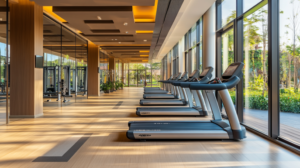In the hospitality industry, ensuring the safety of both guests and staff during emergencies and providing exceptional service is of paramount importance. As establishments catering to diverse and often unfamiliar clientele, hotels must implement robust safety measures and prepare for emergencies. In the hospitality industry, ensuring the safety of both guests and staff during emergencies and providing exceptional service is of paramount importance. As establishments catering to diverse and often unfamiliar clientele, hotels must implement robust safety measures and prepare for emergencies.
From an expert perspective, the safety of guests and staff during emergencies should never be treated as a secondary concern for hotels. It is, in fact, a fundamental aspect of a hotel’s operational integrity. The commitment to guest and staff safety should be at the heart of every hotel’s operations, transcending basic compliance regulations and reflecting a genuine dedication to well-being. Given the unpredictable nature of emergencies—from medical incidents to natural disasters—establishments must invest in training, modern safety equipment, and clear communication channels. One critical aspect is maintaining clear evacuation routes at all times, as these routes ensure a swift and unobstructed escape during emergencies, potentially saving lives and minimising confusion. Here’s how hotels can implement effective strategies to safeguard everyone on their premises:
1. Develop a Comprehensive Emergency Plan
A well-structured emergency plan is the cornerstone of any hotel’s safety strategy. According to the Health and Safety at Work Act 1974 (HSWA), employers must ensure, so far as is reasonably practicable, the health, safety, and welfare of their employees and others affected by their work activities. This plan should cover a range of scenarios, including fire evacuations, medical emergencies, and severe weather events. It must detail specific procedures for each type of emergency, outline roles and responsibilities for staff, and include communication protocols. Regular updates and reviews of the plan are crucial to ensure it remains relevant and effective.
2. Conduct Regular Training and Drills
Training is essential for preparing staff to respond effectively in emergencies. Regular drills should be conducted to practice evacuation procedures, first aid, and the use of emergency equipment. Training should also cover managing guest anxiety and providing clear instructions during an emergency. Ensuring all staff, including new hires, are well-versed in emergency procedures will enhance overall readiness.
3. Implement Robust Fire Safety Measures
Fire safety is a critical aspect of emergency preparedness. Hotels should install and maintain fire alarms, sprinklers, and fire extinguishers throughout the premises. Regular inspections and maintenance are necessary to ensure that these systems function correctly. Clear evacuation routes and signage should also be posted in all guest rooms and common areas.
4. Ensure Accessibility for All Guests
It’s vital to consider the needs of guests with disabilities when planning for emergencies. Ensure that evacuation plans include provisions for those requiring assistance, such as individuals with mobility impairments. Accessible evacuation routes, trained staff to assist, and specialised equipment can make a significant difference in an emergency.
5. Establish Clear Communication Channels
Effective communication during emergencies can greatly influence the outcome. Hotels should have systems for quickly disseminating information to guests and staff. This could include loudspeakers, text alerts, or direct communication from staff. Keeping guests informed about the nature of the emergency and the steps being taken can help manage their fear and confusion.
6. Coordinate with Local Emergency Services
Building relationships with local emergency services can enhance a hotel’s preparedness. Collaborate with fire departments, medical services, and police to understand their procedures and establish a clear line of communication. This partnership can facilitate quicker responses and provide valuable insight into best practices.
7. Review and Learn from Incidents
After an emergency, conduct a thorough review to identify what went well and what could be improved. This debriefing should involve all relevant staff and, if applicable, guests. Use the feedback to refine your emergency plan and training programmes, ensuring continuous improvement in safety protocols.
From an expert viewpoint, a well-prepared hotel safeguards lives and builds trust and credibility. Investing in comprehensive emergency planning, regular staff training, and effective communication strategies will ensure a swift response in critical moments and enhance the hotel’s overall safety culture. By prioritising these measures, hotels can transform emergency preparedness from a mere obligation into a cornerstone of their service excellence.





